Premiere: Ireland’s sex work industry is unapologetic in Call Me Mommy
Words: Eva O’Beirne
Images: Call Me Mommy / Motherland
Call Me Mommy is an intimate and unapologetic portrait of a mature online sex worker, Sinead Connell as she grapples with her career and motherhood all while processing her own internal ‘mommy issues’.
The explosive and emotional short film was directed by Tara O’Callaghan and produced by Motherland. Selected for the renowned Krakow Film Festival, one of the oldest and most respected Oscar-qualifying film festivals, the documentary explores the theme of motherhood and the many places it can appear.
Ahead of the film’s release, Tara sat down with District to discuss sex work in Ireland, what audiences can expect from the film and of course, gave our audience an exclusive premiere of the film’s trailer.
Over two years of research, filming and travelling around Ireland have gone into this film. Tara has spent months talking with and getting to know sex workers from inner-city Dublin to the edges of Kerry and Galway. But it was the last sex worker she spoke to, single mother Sinéad Connell that captured her attention the most.
Tara notes that there are almost too many stories to tell when it comes to sex work in Ireland, but by focusing primarily on Sinéad’s life, Tara was able to “make sure she had a voice” instead of being lost in narratives that solely feature the platform sex workers use or the reasons a person may go into the industry.
Perceptions of sex work in Ireland can be overwhelmingly negative, and Tara lists off the many stereotypes that she’s heard in her past two years of research: “People assume that sex workers are lazy, that they don’t pay taxes……the women I have met while doing this film are the strongest, most hardworking people I have ever come across.”
And these perceptions only get worse as female sex workers get older. As said by Sinéad: “There’s a whole set of other problems for older women. You’re a bad mother, you bring shame on the family.”
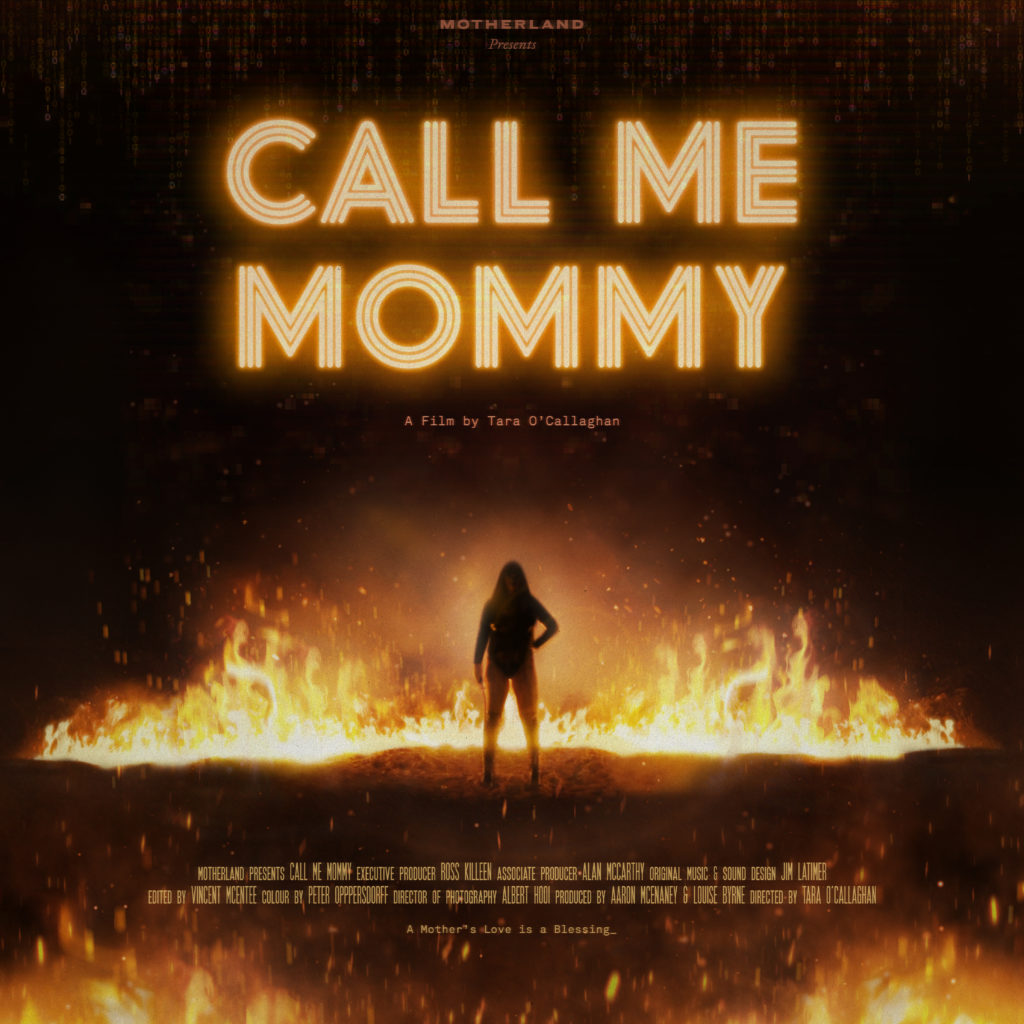
Call Me Mommy fixates on the singular story of Sinéad, her domestic life and her dual-persona as a mature sex worker and a mother who has lost contact with her extended family. Set in Dublin, the film has a significant lack in male presence, heavily focusing on femininity and perceptions of sex work.
The filming of the documentary took place over eight days, with Tara emphasising that some scenes took “a lot” to shoot. Sinéad embraced the crew, allowing them into her home to document her daily life alongside her four children in Dublin. Tara notes that she has become quite close to many of the women she interviewed, explaining that often due to sex workers being ostracised by their families, they’re willing to adopt people into their own.
Tara also expresses how thankful she is for Sinéad and other sex workers to trust her: “It isn’t easy because they get screwed over by journalists, by Gardaí all the time. It really feels like the whole world is against them sometimes.”

I’d love to be in a magazine, love to doing porn modeling, love to be in playboy. I don’t regret one single thing in my life at all.
Sinead Connell, @sincitymilfofficial
The film is a beautiful yet brutal insight to the universal pressures of womanhood. To be a homemaker, a dedicated daughter, and a supportive mother, all while keeping in line with certain expectations to look or act a certain way.
“Sex work is hard, it’s a 24-hour job,” says Tara. She recalls how Sinéad routinely stays up to the early hours of the morning, talking to clients. “People have this perception of sex work as easy, where you just log on for an hour or two and that’s it for a few days. That couldn’t be further from the truth.”
“It is exhausting, it has a huge emotional toll on you physically and mentally,” Tara continues. She notes how she was also delusional, sold on the fantasy of online sex work before researching for the film.
Tara explained her initial inspiration behind Call Me Mommy, noting a lot of it came from observing her friends in the first few months of the pandemic: “I feel like within Dublin, people can be quite liberal and very much celebrate the idea of women making a lot of money for themselves. Combined with rising rents and the pandemic where so many people were laid off, why wouldn’t you start an OnlyFans?”
“It was a running joke amongst people I knew, that they’d lost their jobs and they were going to start an OnlyFans. And I was fascinated by how prevalent online sex work has become in comparison to what it was like ten years ago with cam-girls and message boards being the norm.”
Often sex work can be categorised as two opposites: 1) empowerment, or 2) exploitation. For Tara, sex work is definitely empowering for women but she recognises that women are often sold a false reality of the “glamour” of having an OnlyFans.
“I talked to a lot of women who lived in small communities, and as soon as they became online sex workers they would have groups of lads screaming profanity at them from cars, in the street. There was no separation between the online persona and their everyday lives,” she explains.
“I have heard stories about women being attacked, being cut off from families. Hotels throwing them out for attempting to stay and film collaborations with another sex worker,” Tara recalls. “They’re sold the idea that they’re going to be rich and famous. And although some are, it isn’t the truth.”
As for exploitation versus empowerment, Tara explains that online sex workers are controlled by money rather than a pimp, but maintaining a constant stream of revenue requires the workers to push their boundaries and make more explicit content.
Portraying these themes in the film was difficult for Tara, but the overarching themes of maturity and motherhood bring a harsh focus on what is seen as desirable in the pornography industry.
Sinéad references in the film that younger sex workers often have an edge over mature ones, a factor that Tara feels makes Sinéad’s story as a sex worker more compelling as “people have set ideas about what sex work is like in Ireland and who is involved. They have no idea the extent and scale of the industry. It isn’t just girls in their twenties doing OnlyFans.”
We need to stop demonising the idea of sex work and realise that sex workers are human too. Because I haven’t heard a lot of conversations where they are treated like humans.
Tara O’Callaghan
As for what Tara hopes audiences will learn from the short documentary? The answer is simple yet so complicated.
“I want people to stop defining sex workers purely by their profession. I feel like people rarely get past that point. They just see them as a sex worker and nothing else, and treat them in an inhumane way,” says Tara. “They all have such intricate, amazing stories. Even with Sinéad, we barely scratched the surface.”
“I hope Irish society will start to see sex work as legitimate, as work. But so much needs to be done. I want this film to start conversations about sex work in Ireland. That would be a good starting point.”
For more information on Call Me Mommy, you can check out the film’s socials here.
You can watch the trailer over on our Instagram.
Elsewhere on District: Your guide to this year’s Dublin Gay Theatre Festival


